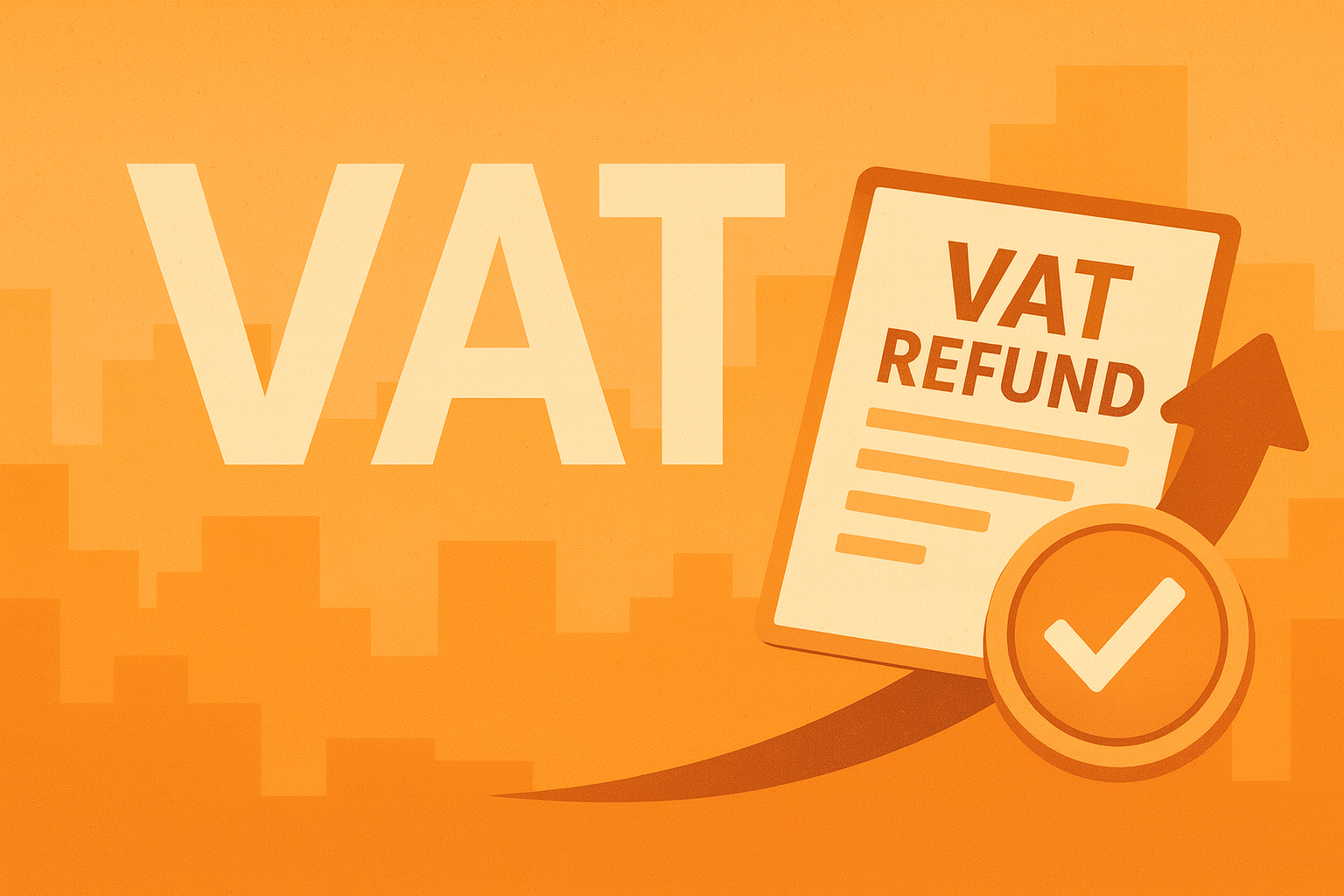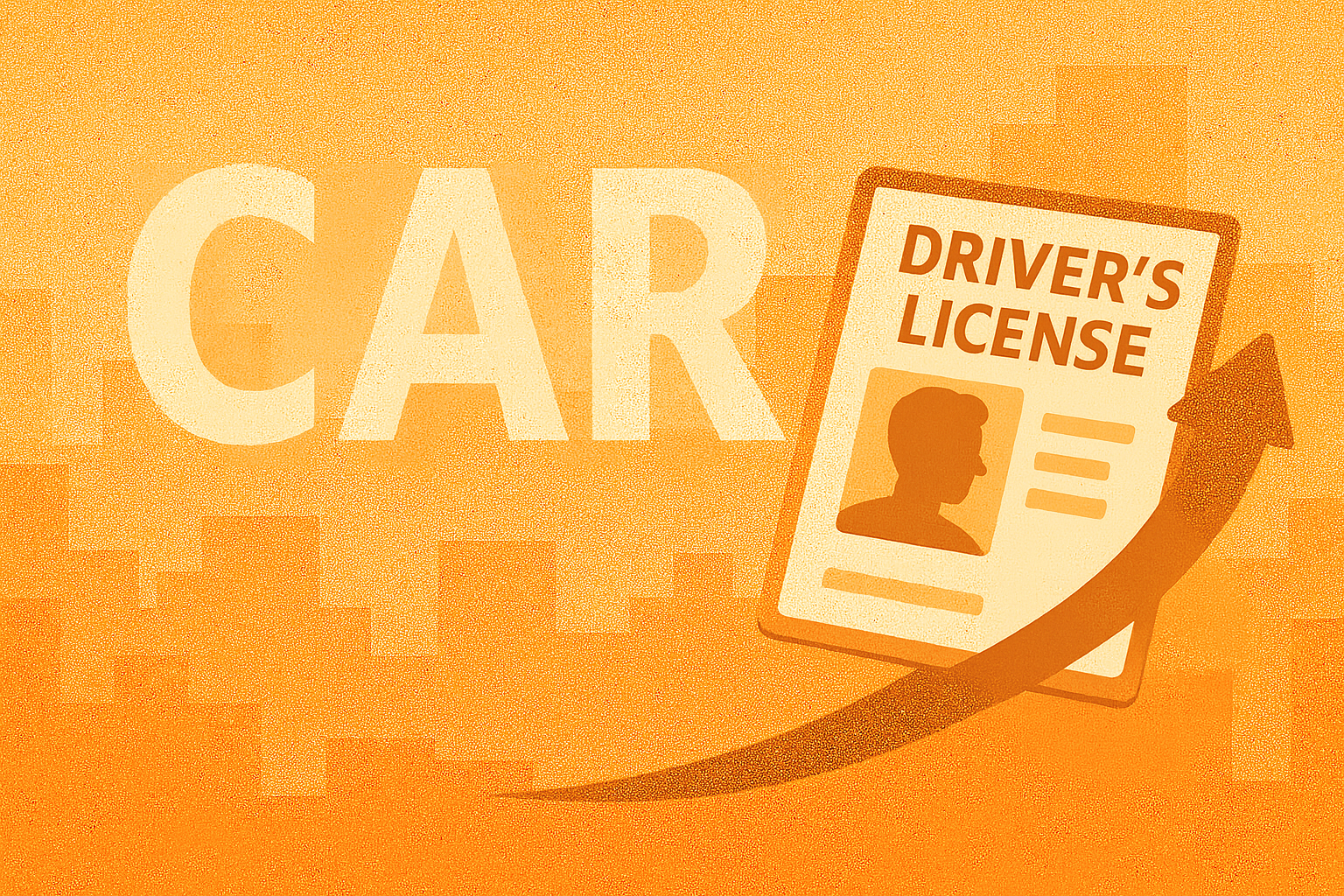· Tax · 13 min read
The Dutch Tax System: 2025 Guide for Expats and Entrepreneurs
A comprehensive guide to the Dutch tax system, including information on who is taxed, tax brackets, income tax, payroll tax, the 30% ruling, and entrepreneur tax.

The Dutch Tax System: 2025 Guide for Expats and Entrepreneurs
“Understanding the Dutch tax system is essential for anyone living or working in the Netherlands. This comprehensive guide breaks down the complexities and helps you navigate your tax obligations effectively.”
The Dutch tax system is known for its progressive structure and comprehensive coverage of various income sources. While it may seem complex at first glance, understanding how it works can help you optimize your tax position and ensure compliance with Dutch tax laws. This guide provides a detailed overview of the Dutch tax system, covering everything from basic principles to specific considerations for expats and entrepreneurs.
Who is Taxed in the Netherlands?
Resident vs. Non-Resident Taxation
The Netherlands operates on a residence-based taxation system with important distinctions between residents and non-residents:
Resident Individuals:
- Taxed on their worldwide income
- Considered resident if they have a permanent home in the Netherlands
- Also resident if they stay in the Netherlands for more than 183 days in a calendar year
- Subject to all Dutch taxes including income tax, wealth tax, and inheritance tax
Non-Resident Individuals:
- Only taxed on their Dutch-sourced income
- May be subject to limited Dutch tax obligations
- Often eligible for tax treaties to avoid double taxation
- May still be liable for certain Dutch taxes on specific income sources
Determining Residency Status
Residency is determined by several factors, not just physical presence:
- Permanent Home: Owning or renting a permanent residence in the Netherlands
- Family Ties: Having family members living in the Netherlands
- Economic Interests: Business activities, employment, or investments in the Netherlands
- Social Integration: Participation in Dutch social and cultural life
- 183-Day Rule: Spending more than half the year in the Netherlands
Tax Brackets and Rates for 2025
Income Tax Structure
The Dutch income tax system is structured around three “Boxes.” For 2025, the rates and brackets are as follows:
| Tax Box | Income Source | 2025 Tax Rates |
|---|---|---|
| Box 1 | Income from employment, pensions, and home ownership | Bracket 1: 36.97% on income up to €79,842 Bracket 2: 49.50% on income above €79,842 |
| Box 2 | Income from a substantial interest (>5%) in a company (e.g., dividends) | Bracket 1: 24.5% on the first €67,000 Bracket 2: 33% on amounts above €67,000 |
| Box 3 | Taxable income from savings and investments (wealth tax) | Flat rate of 36% on the deemed return on net assets above the €59,500 threshold |
Note on Box 1: The 36.97% rate in the first bracket is a combination of income tax and national insurance contributions (volksverzekeringen). For individuals who have reached the state pension (AOW) age, a lower rate applies.
Social Security Contributions
In addition to income tax, residents pay social security contributions:
- National Insurance (AOW): 17.9% on income up to €37,149
- Long-term Care (WLZ): 9.65% on income up to €37,149
- Unemployment (WW): 2.9% on income up to €37,149
Income Tax (Box 1)
What Constitutes Box 1 Income?
Box 1 includes all income from employment and home ownership:
Employment Income:
- Salary and wages
- Bonuses and benefits
- Stock options and equity compensation
- Severance payments
- Fringe benefits
Home Ownership Income:
- Imputed rental value of owner-occupied homes
- Mortgage interest deductions (limited)
- Property-related expenses
Deductions and Allowances
Available Deductions:
- Mortgage Interest: Limited to 30-year period, maximum 43.03% tax rate
- Work-Related Expenses: The deduction of work-related expenses for employees is highly restricted. Most costs are expected to be covered by the employer via tax-free allowances (e.g., for travel or home office costs). There is no standard deduction for employees.
- Study Costs: Deductible educational expenses
- Medical Expenses: Costs exceeding €385 threshold
- Charitable Donations: Deductible with proper documentation
Important Limitations:
- Mortgage interest deduction is being phased out
- Work-related expenses have strict documentation requirements
- Medical expenses must be medically necessary
Tax Credits and Rebates
Common Tax Credits:
- General Tax Credit (algemene heffingskorting): Maximum of €3,380 (income-dependent)
- Employment Tax Credit (arbeidskorting): Maximum of €5,565 (income-dependent)
- Single Parent Credit: €1,000 for single parents
- Elderly Tax Credit: €1,420 for taxpayers aged 65+
Payroll Tax System
How Payroll Tax Works
Payroll tax is withheld at source by employers and includes:
- Income Tax Withholding
- Social Security Contributions
- National Insurance Premiums
Employer Responsibilities
Employers must:
- Calculate and withhold correct amounts
- Submit monthly returns to the tax office
- Provide annual tax statements to employees
- Maintain proper records for at least 7 years
Employee Considerations
Employees should:
- Review monthly payslips for accuracy
- Keep all tax-related documents
- Understand their tax position
- Plan for potential tax refunds or additional payments
The 30% Ruling for Expats
What is the 30% Ruling in 2025?
The 30% ruling is a tax advantage for highly skilled migrants moving to the Netherlands for a specific job. However, the rules have changed significantly in recent years.
For individuals granted the ruling, the tax benefit provides a flat rate over its 5-year maximum duration:
- All 60 months: 30% of the gross salary is tax-free (reducing to 27% for new applicants from 2027)
Key Changes and Limitations for 2025
Salary Cap: The tax-free allowance can only be applied to a maximum salary of €233,000 (2025, indexed annually). Any income above this cap is fully taxed at the normal Box 1 rate.
No More Box 3 Exemption: As of January 1, 2025, the “partial foreign taxpayer status” has been abolished. This means 30% ruling holders are now taxed on their worldwide assets (savings, investments, non-primary real estate) in Box 3, just like Dutch residents.
Duration: The maximum duration remains 5 years.
Eligibility Requirements
To qualify, you must:
- Be recruited from abroad
- Have specific expertise scarce in the Dutch market
- Meet minimum salary requirements
- Have lived outside the Netherlands for 16+ months
- Have an employer willing to apply on your behalf
Eligibility requirements (recruitment from abroad, scarce expertise, salary thresholds) remain in place, but the benefit itself is less generous than in previous years. The driving license exchange privilege is still attached to the ruling.
Entrepreneur Tax (Box 1)
Self-Employment Taxation
Entrepreneurs are taxed under Box 1 with special considerations:
Taxable Income Includes:
- Business profits
- Professional income
- Income from freelance work
- Business-related benefits
Available Deductions:
- Business expenses
- Depreciation of assets
- Home office costs
- Professional development
- Business-related travel
Entrepreneur Allowances
Special Deductions for Entrepreneurs:
- Startup Allowance: €2,123 for new businesses
- Research and Development: Enhanced deductions for R&D activities
- Investment Allowance: Deductions for business investments
- Innovation Box: Reduced 9% rate for innovative activities
VAT Considerations
VAT Registration Requirements:
- Mandatory: If annual turnover exceeds €20,000
- Voluntary: Can register even below threshold
- EU VAT: Special rules for cross-border transactions
VAT Rates in the Netherlands:
- Standard Rate: 21% (most goods and services)
- Reduced Rate: 9% (food, books, medicines)
- Zero Rate: 0% (exports, international services)
Wealth Tax (Box 3)
How Box 3 Works in 2025
Box 3 taxes the net value of your assets (savings, stocks, investment property, etc., minus debts) above a tax-free threshold.
Taxable Assets:
- Savings accounts
- Investment portfolios
- Real estate (not primary residence)
- Other valuable assets
Exemptions:
- Primary residence (taxed in Box 1)
- Business assets (taxed in Box 1)
- Personal belongings
- Assets below the tax-free threshold
Tax Calculation Method
Tax-Free Threshold (2025): Each individual has a tax-free threshold of €59,500. Fiscal partners have a combined threshold of €119,000.
Tax Rate: A flat tax rate of 36% is levied on the deemed return on your assets.
Calculating Taxable Income: The government uses a fixed, deemed rate of return based on the type of asset you hold (e.g., savings, investments, or other assets). This system is a temporary bridge while a new system based on actual returns is developed. For 2025, the deemed returns are set by the government and are no longer tiered by wealth brackets as in the past.
Dividend Tax (Box 2)
Substantial Interest Rules
Box 2 applies to substantial interests in companies:
Substantial Interest Defined:
- Owning 5% or more of company shares
- Having significant influence over company decisions
- Receiving substantial dividend income
Tax Rates (2025): Box 2 now has a progressive two-bracket system:
- 24.5% on the first €67,000 of income from substantial interest per person
- 33% on any amount exceeding €67,000 per person
Fiscal partners can tax their first €134,000 of combined Box 2 income at the lower rate.
Planning Opportunities
Strategies to Consider:
- Timing of dividend distributions
- Use of holding company structures
- Dividend reinvestment strategies
- International tax planning
Tax Filing and Deadlines
Annual Tax Return
Filing Requirements:
- Residents: Must file annually
- Non-residents: File if they have Dutch-source income
- Entrepreneurs: Always required to file
Filing Deadlines:
- Standard deadline: May 1st of the following year (e.g., May 1st, 2026, for the 2025 tax year)
- Extension available: Until September 1st with proper request
- Late filing penalties: €385 + interest on unpaid taxes
Required Documentation
Essential Documents:
- Employment contracts and payslips
- Bank statements and investment records
- Property ownership documents
- Business financial statements
- Receipts for deductible expenses
International Tax Considerations
Tax Treaties
The Netherlands has extensive tax treaties to prevent double taxation:
Key Benefits:
- Reduced withholding tax rates
- Exemption from certain taxes
- Credit for foreign taxes paid
- Clear residency determination
Common Treaty Provisions:
- Permanent Establishment: Business presence thresholds
- Dividend Withholding: Reduced rates for qualifying shareholders
- Interest and Royalties: Often exempt or reduced rates
- Capital Gains: Special rules for property and shares
EU Tax Rules
EU-Specific Considerations:
- Freedom of Movement: Right to work and live in EU countries
- Social Security Coordination: Avoid double social security contributions
- VAT Rules: Special provisions for EU transactions
- State Aid Rules: Restrictions on certain tax benefits
Tax Planning Strategies
For Employees
Optimization Strategies:
- Pension Contributions: Maximize tax-deferred savings
- Work-Related Expenses: Document and claim all eligible expenses
- Home Ownership: Optimize mortgage interest deductions
- Investment Planning: Consider Box 3 tax implications
For Entrepreneurs
Business Tax Planning:
- Business Structure: Choose optimal legal form
- Expense Management: Maximize deductible business expenses
- Asset Depreciation: Optimize depreciation schedules
- VAT Planning: Efficient VAT management and recovery
For Expats
Expat-Specific Strategies:
- 30% Ruling: Maximize benefits during eligibility period
- Asset Location: Optimize Box 3 tax position
- International Planning: Leverage tax treaties effectively
- Timing Considerations: Plan arrival and departure dates
Common Tax Mistakes to Avoid
Filing Errors
Common Mistakes:
- Missing income sources
- Incorrect deduction claims
- Incomplete documentation
- Late filing without extension
Compliance Issues
Avoid These Problems:
- Underreporting income
- Overstating deductions
- Missing foreign income
- Ignoring filing requirements
Planning Errors
Strategic Mistakes:
- Not considering timing of income
- Ignoring international implications
- Missing available deductions
- Poor record keeping
Getting Professional Help
When to Seek Professional Advice
Consider Professional Help If:
- You have complex income sources
- You’re starting a business
- You have international considerations
- You’re dealing with tax disputes
- You need strategic tax planning
Types of Tax Professionals
Available Services:
- Tax Advisors: General tax planning and compliance
- Accountants: Bookkeeping and financial statements
- Tax Lawyers: Complex legal tax issues
- International Specialists: Cross-border tax matters
Frequently Asked Questions (FAQ)
General Tax Questions
Q: How do I know if I’m a tax resident in the Netherlands? A: You’re a tax resident if you have a permanent home in the Netherlands or stay for more than 183 days in a calendar year. The tax office considers multiple factors including family ties and economic interests.
Q: What is the difference between Box 1, Box 2, and Box 3? A: Box 1 covers employment and home ownership income, Box 2 covers substantial interest dividends, and Box 3 covers savings and investments (wealth tax). Each has different rates and rules.
Q: Do I need to file a tax return if I’m an employee? A: Yes, all residents must file an annual tax return. Even if your employer withholds taxes correctly, you may be eligible for refunds or need to report additional income.
Q: What happens if I file my tax return late? A: Late filing results in a €385 penalty plus interest on any unpaid taxes. You can request an extension until September 1st to avoid penalties.
Income and Deductions
Q: Can I deduct my mortgage interest? A: Yes, but with limitations. The deduction is being phased out and is limited to a 30-year period. The maximum tax benefit is 43.03% of the interest paid.
Q: What work-related expenses can I deduct? A: The deduction of work-related expenses for employees is highly restricted. Most costs are expected to be covered by the employer via tax-free allowances. There is no standard deduction for employees. Additional expenses like tools, work clothing, and travel costs may be deductible with proper documentation.
Q: Are medical expenses deductible? A: Yes, medical expenses exceeding €385 are deductible. This includes costs not covered by health insurance, dental work, and prescription medications.
Q: Can I deduct study costs? A: Yes, educational expenses related to your current or future profession are deductible. This includes tuition, books, and travel costs.
Business and Entrepreneurship
Q: What tax benefits are available for entrepreneurs? A: Entrepreneurs can claim business expenses, depreciation, startup allowances, and investment deductions. There are also special rates for innovative activities.
Q: Do I need to register for VAT? A: VAT registration is mandatory if your annual turnover exceeds €20,000. You can register voluntarily even below this threshold.
Q: How do I handle business expenses? A: Keep detailed records of all business-related expenses, including receipts and invoices. Business expenses are deductible from your business income.
Q: What is the startup allowance? A: New entrepreneurs can claim a €2,123 deduction in their first year of business. This helps offset initial startup costs and business expenses.
International Tax Issues
Q: How do tax treaties affect my Dutch taxes? A: Tax treaties prevent double taxation and may provide reduced rates on certain income types. They also help determine residency status and tax obligations.
Q: Do I pay Dutch taxes on foreign income? A: Residents are taxed on worldwide income, but tax treaties and foreign tax credits may reduce or eliminate Dutch tax on foreign income.
Q: What happens to my taxes if I leave the Netherlands? A: When you leave, you become a non-resident and are only taxed on Dutch-source income. You may need to file a departure return.
Q: Can I keep my 30% ruling if I move abroad? A: No, the 30% ruling automatically ends when you leave the Netherlands. You cannot carry over unused time to a future return. Furthermore, the key benefit of the Box 3 exemption (wealth tax) has been abolished for all users as of 2025.
Tax Planning and Optimization
Q: How can I reduce my Dutch tax burden? A: Maximize available deductions, use tax-efficient investment strategies, consider pension contributions, and plan the timing of income and expenses.
Q: Should I incorporate my business? A: Incorporation can provide tax benefits but involves additional complexity and costs. Consider your business size, income level, and long-term goals.
Q: How do I optimize my Box 3 tax position? A: Consider the €59,500 exemption, use tax-efficient investment products, and plan asset allocation to minimize wealth tax liability.
Q: What tax planning should I do before moving to the Netherlands? A: Plan the timing of your move, organize your financial affairs, understand the 30% ruling eligibility, and consider asset location strategies.
Specific Tax Situations
Q: How are stock options taxed? A: Stock options are generally taxed as employment income when exercised. The benefit of the 30% ruling on this income is subject to the salary cap (€233,000) and applies at the flat 30% rate.
Q: What taxes apply to rental income? A: Rental income from investment properties is taxed in Box 3 as wealth. The primary residence is taxed in Box 1 with imputed rental value.
Q: How do I handle cryptocurrency taxes? A: Cryptocurrency is treated as an investment asset in Box 3. Gains and losses are subject to wealth tax rather than capital gains tax.
Q: What are the inheritance tax rules? A: Inheritance tax applies to worldwide assets for residents. Rates vary from 10% to 40% depending on the relationship and amount inherited.
Compliance and Record Keeping
Q: How long should I keep tax records? A: Keep all tax-related documents for at least 7 years. This includes receipts, invoices, bank statements, and tax returns.
Q: What happens during a tax audit? A: The tax office may request additional documentation or clarification. Having good records and professional representation can help ensure a smooth process.
Q: Can I amend a previous tax return? A: Yes, you can file an amended return within 5 years of the original filing date. This is useful for claiming missed deductions or reporting additional income.
Q: How do I handle tax disputes? A: You can file objections to tax assessments within 6 weeks. For complex disputes, consider professional representation and potentially legal action.
Conclusion
The Dutch tax system, while complex, offers numerous opportunities for optimization and planning. Understanding the basic structure, available deductions, and compliance requirements is essential for anyone living or working in the Netherlands.
Key takeaways for expats and entrepreneurs:
- Residency Matters: Your tax obligations depend heavily on your residency status
- Box System: Understanding the three-box system is crucial for tax planning
- Deductions Available: Numerous deductions and credits can significantly reduce your tax burden
- Professional Help: Consider professional advice for complex situations
- Compliance Essential: Proper record keeping and timely filing prevent problems
The Dutch tax system is designed to be fair and progressive, but it requires careful attention to detail and ongoing compliance. By understanding the rules and planning accordingly, you can optimize your tax position while ensuring full compliance with Dutch tax laws.
Remember that tax laws change regularly, and individual circumstances vary significantly. Always consult with qualified professionals for specific advice tailored to your situation.
Need help understanding your Dutch tax obligations? Use our Dutch Tax Calculator to estimate your taxes, or contact us for personalized tax advice and planning services.



